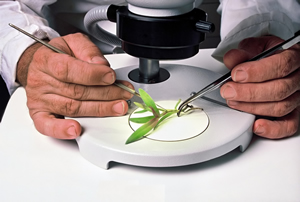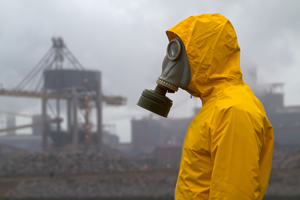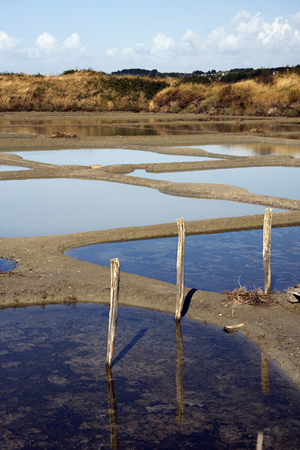AP Environmental Science: Course Syllabus
Course Code: SCZ611
Welcome to the DoDEA Virtual High School. Thank you for visiting our course catalog. Please navigate through the syllabus below to find out more information about this DVHS online course. If you have questions, please contact us at your earliest convenience.
Course Description
 AP Environmental Science is a yearlong examination of the interrelationships of the natural world. Students identify and analyze environmental problems and their effects, and evaluate the effectiveness of proposed solutions. Students learn to think like environmental scientists: making predictions based on observations, writing hypotheses, designing and completing field studies and experiments, and reaching conclusions based on the analysis of data derived from these experiments. Students apply the concepts of environmental science to their everyday experiences and current events and issues in science, politics, and society. The course provides opportunities for guided inquiry and student-centered learning to foster critical thinking skills.
AP Environmental Science is a yearlong examination of the interrelationships of the natural world. Students identify and analyze environmental problems and their effects, and evaluate the effectiveness of proposed solutions. Students learn to think like environmental scientists: making predictions based on observations, writing hypotheses, designing and completing field studies and experiments, and reaching conclusions based on the analysis of data derived from these experiments. Students apply the concepts of environmental science to their everyday experiences and current events and issues in science, politics, and society. The course provides opportunities for guided inquiry and student-centered learning to foster critical thinking skills.
Image: Plant being dissected under Microscope for tissue culture; Shutterstock.com
Objectives
Upon completion of AP Environmental Science, students should be able to:
- Read, understand, and interpret a variety of scientific information.
- Demonstrate proficiency in explaining, analyzing and evaluating environmental problems and their solutions.
- Apply the concepts and procedures of scientific reasoning to understanding the natural world.
- Perform field studies and experiments, interpret the results of observations and communicate results and conclusions.
DoDEA Environmental Science Standards may be viewed by clicking the link.
Image: A teacher helping a student conduct a science experiment; ThinkStock.com
Course Outline First Semester
Module I: Introduction To Environmental Problems
- Section A: Environmentally Sustainable Societies
- Section B: Environmental Problems Part I
- Section C: Environmental Problems Part II
- Section D: Principles Of Sustainability
Module II: Ecological Principles
- Section A: Science, Matter, And Energy
- Section B: Earth Structure And Systems
- Section C: Ecology
- Section D: Biodiversity And Evolution
Module III: Human Impact On Sustainability
- Section A: Impacts Of The Human Population
- Section B: Climate And Terrestrial Biodiversity
- Section C: Aquatic Biodiversity
Module IV: Sustaining Biodiversity
- Section A: The Species Approach
- Section B: The Ecosystem Approach
- Section C: Sustaining Aquatic Biodiversity
Module V: Sustaining Land And Water Resources
- Section A: Food, Soil, And Pest Management
- Section B: Water Resources
- Section C: Geology And Nonrenewable Minerals
Semester Exam
- APES Test Preparation
- Semester Exam
Image: The salt marshes of Marais Guerande, Brittany, Northern France; Shutterstock.com
 Course Outline Second Semester
Course Outline Second Semester
Module VI: Sustaining Energy Resources
- Section A: Energy Conservation and Efficiency
- Section B: Nonrenewable Energy
- Section C: Renewable Energy
Module VII: Human Health and Environmental Hazards
- Section A: Biological and Chemical Hazards
- Section B: Air Pollution
- Section C: Water Pollution
- Section D: Solid and Hazardous Waste
Module VIII: Environmental Impacts of Urbanization
- Section A: Climate Change
- Section B: Sustainable Cities
Module IX: Sustaining Human Societies
- Section A: Economics and the Environment
- Section B: Politics and the Environment
- Section C: Ethics and the Environment
Module X: Applying Principles of Environmental Science
- Section A: Issues in Environmental Science
Semester 2 Exam
- APES Test Preparation
- Semester 2 Exam
Image: Stop off shore oil drilling written across a sign; Shutterstock.com
 Required Materials
Required Materials
Textbook
Living in the Environment: Principles, Connections, and Solutions, 16/E | Miller | ©2009 | Cengage ISBN: 0495556718

